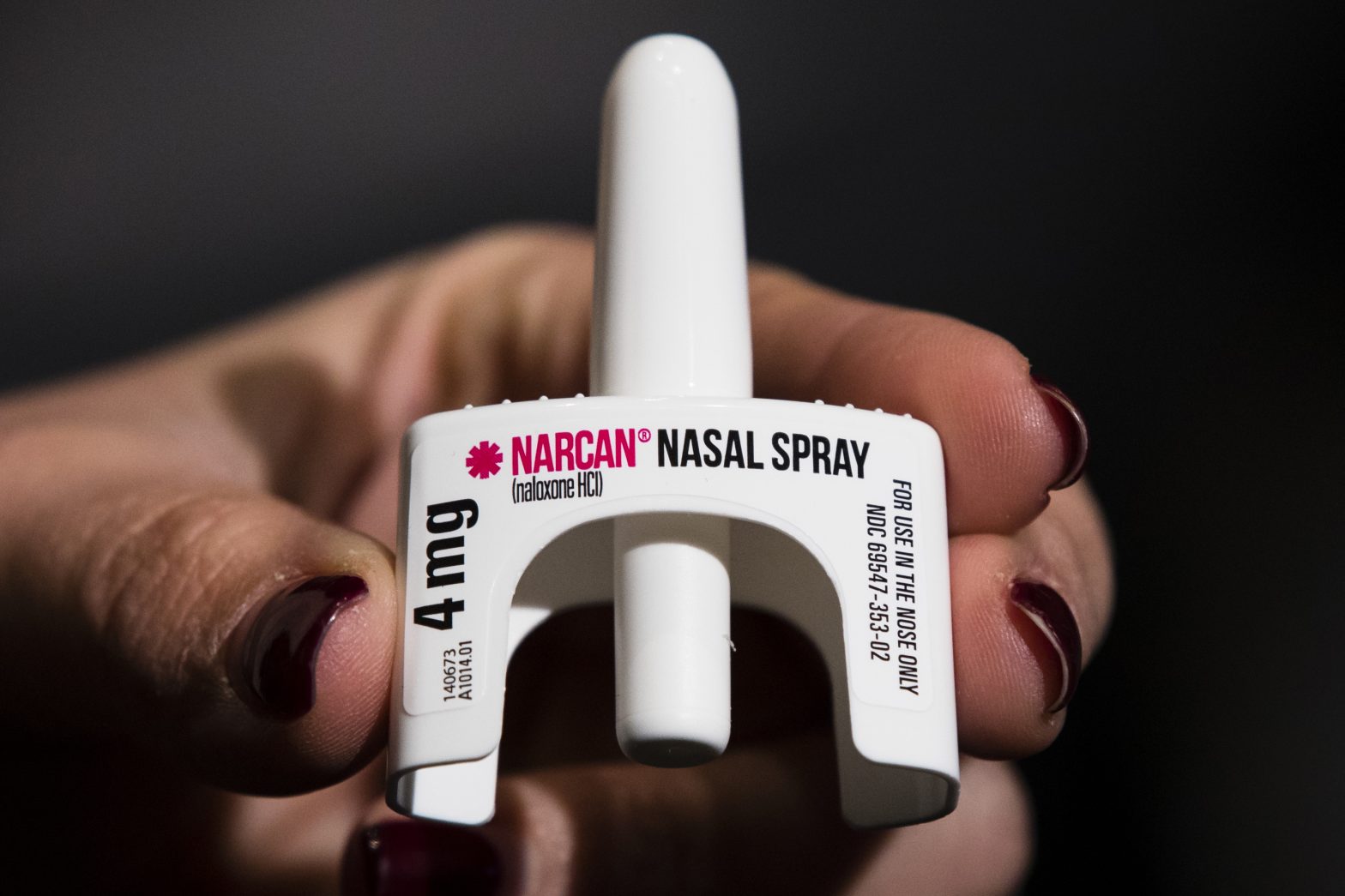FDA Approves Narcan for Over-the-Counter Sales

WASHINGTON — The Food and Drug Administration on Wednesday approved the over-the-counter sale of a nasal spray that can reverse opioid overdoses, a move the agency says should save lives and reduce the nation’s surging rate of overdose deaths.
Narcan, a 4-milligram naloxone hydrochloride nasal spray, is the first product of its kind and is considered the standard when it comes to the treatment of an opioid overdose.
Wednesday’s approval had been sought by public health and treatment experts who believe greater availability of the drug could help turn the tide in drug fatalities.
Earlier this month, a bipartisan group of 28 lawmakers on Capitol Hill joined the chorus, urging the agency to fully approve Narcan’s over-the-counter distribution.
With its approval, the rapid overdose treatment should be available in pharmacies, supermarkets and other retail stores by summer.
“Today’s approval of OTC naloxone nasal spray will help improve access to naloxone, increase the number of locations where it’s available and help reduce opioid overdose deaths throughout the country,” said FDA Commissioner Dr. Robert M. Califf, in a statement posted to the agency’s website.
“We encourage the manufacturer to make accessibility to the product a priority by making it available as soon as possible and at an affordable price,” he said.
According to a report released earlier this month by the Reagan-Udall Foundation for the FDA, in collaboration with the agency, opioid overdose persists as a major public health issue in the United States, with rates increasing substantially since 2013.
The report’s authors found that fatal opioid overdoses increased by 13% from 2020 to 2021, largely driven by increases in deaths due to fentanyl and its analogs.
“Every day, 187 people die from an opioid overdose, 24% of which involve prescription medication,” the report says.
Narcan/naloxone prevents death from overdose by blocking the effect of opioids in the body.
The reversal effects of the drug are temporary — restoring breathing within 2-3 minutes with effects lasting 30-90 minutes, and more than one dose of naloxone may be necessary to prevent death from an overdose depending on the amount of opioid ingested.
Prior to Wednesday, one of the challenges related to dealing with opioid overdoses was that reversal agents are most useful if present and administered at the scene of an overdose.
According to the Centers for Disease Control and Prevention and others, bystanders were present but unable to provide a lifesaving dose of Narcan/naloxone in at least 46% of fatal overdoses in 2021.
While states have allowed pharmacists to have a standing prescription of Narcan on hand so that they can quickly dispense it to anyone in need, pharmacies have been slow to act for factors ranging from cost and supply chain issues to concern that they are somehow enabling addiction.
Though opioid overdoses increased during the COVID-19 pandemic — and disproportionately so for Black Americans and residents of poor, urban areas — the number of naloxone prescriptions dispensed per week declined and remained low.
Of the nearly 17 million naloxone doses distributed in 2021, only 2.64 million were from pharmacies, the Reagan-Udall Foundation report said.
At present, a two-dose pack of prescription Narcan is often free to people covered by Medicaid or private insurance, or has a copay of less than $10.
One concern, however, is that a typical health insurance plan prescription drug benefit, whether public or private, may not include coverage of nonprescription products, thus increasing out-of-pocket cost to the consumer if the nonprescription price is greater than a drug benefit copay.
Officials on Wednesday said how public and private insurance programs will deal with the new over-the-counter designation of Narcan could take weeks or months to work out.
In their letter to Califf, the 28 members of Congress wrote that “the reality is that overdose deaths are preventable, but intervention must occur quickly.”
“Putting Narcan directly into the hands of those impacted by substance abuse disorders will save countless lives,” they continued. “We consider this to be a step in the right direction, but acknowledge there is still more work to be done. We look forward to further action from the FDA on this issue, and we stand ready to work with you on further policies to end the opioid epidemic.”
Dan can be reached at [email protected] and at https://twitter.com/DanMcCue























